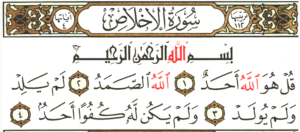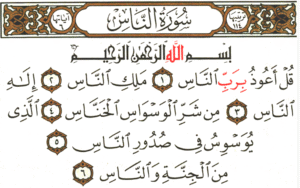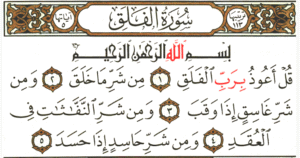Introduction
In today’s fast-paced world, Muslims across the UK and Europe often face challenges that affect their physical health, mental well-being, and spiritual stability. At Alwafaa Institute, we aim to provide authentic Islamic guidance and resources to help Muslims overcome these challenges through Ruqyah Shariah—the Qur’anic and prophetic method of healing and protection.
What is Ruqyah Shariah?
Ruqyah Shariah refers to the recitation of verses from the Qur’an and authentic supplications taught by Prophet Muhammad (peace be upon him) for the purpose of protection and healing. It is a spiritual remedy that connects the believer directly to Allah.
Unlike cultural or superstitious practices that have no basis in Islam, Ruqyah is firmly rooted in the Qur’an and Sunnah. It can be performed by anyone who has correct faith, sincerity, and trust in Allah.
Why Muslims in the UK and Europe Need Ruqyah
Living in a non-Muslim society often means Muslims face unique challenges:
-
Lack of easy access to traditional scholars or imams.
-
Exposure to jealousy and envy in diverse communities.
-
Stress, anxiety, or depression caused by isolation from family back home.
-
Spiritual attacks like the evil eye or sihr, which can happen anywhere.
Ruqyah Shariah empowers Muslims to protect themselves and their families even in places where Islamic support may be limited. Whether you live in London, Manchester, Paris, or Berlin, you can apply Ruqyah in your daily life.
Types of Ruqyah
There are two main types:
1. Ruqyah Shariah (Permissible)
This is the Qur’anic method based on:
-
Reciting Qur’an (Surah Al-Fatihah, Ayat al-Kursi, last verses of Surah Al-Baqarah, Surah Al-Ikhlas, Surah Al-Falaq, and Surah An-Naas).
-
Authentic duas (prophetic supplications).
-
Blowing lightly on oneself or on water after recitation.
2. Ruqyah Shirkiyyah (Forbidden)
This involves using charms, amulets, talismans, or calling on jinn. Such practices are not part of Islam and are strictly prohibited.
How to Perform Ruqyah Shariah at Home ؟
Performing Ruqyah does not require a scholar. Every Muslim can do it by following these steps:
-
Purify your intention – believe that healing comes only from Allah.
-
Perform wudu – cleanliness enhances the spiritual environment.
-
Recite Qur’an – focus on the following chapters:
-
Surah Al-Fatihah (the Opening).
-
الْحَمْدُ لِلَّهِ رَبِّ الْعَالَمِينَ, الرَّحْمَٰنِ الرَّحِيمِ, مَالِكِ يَوْمِ الدِّينِ, إِيَّاكَ نَعْبُدُ وَإِيَّاكَ نَسْتَعِينُ, اهْدِنَا الصِّرَاطَ الْمُسْتَقِيمَ,صِرَاطَ الَّذِينَ أَنْعَمْتَ عَلَيْهِمْ غَيْرِ الْمَغْضُوبِ عَلَيْهِمْ وَلَا الضَّآلِّينَ
-
Ayat al-Kursi (2:255).
-
ٱللَّهُ لَآ إِلَـٰهَ إِلَّا هُوَ ٱلْحَىُّ ٱلْقَيُّومُ ۚ لَا تَأْخُذُهُۥ سِنَةٌ وَلَا نَوْمٌ ۚ لَّهُۥ مَا فِى ٱلسَّمَـٰوَٰتِ وَمَا فِى ٱلْأَرْضِ ۗ مَن ذَا ٱلَّذِى يَشْفَعُ عِندَهُۥٓ إِلَّا بِإِذْنِهِۦ ۚ يَعْلَمُ مَا بَيْنَ أَيْدِيهِمْ وَمَا خَلْفَهُمْ ۖ وَلَا يُحِيطُونَ بِشَىْءٍ مِّنْ عِلْمِهِۦٓ إِلَّا بِمَا شَآءَ ۚ وَسِعَ كُرْسِيُّهُ ٱلسَّمَـٰوَٰتِ وَٱلْأَرْضَ ۖ وَلَا يَـُٔودُهُۥ حِفْظُهُمَا ۚ وَهُوَ ٱلْعَلِىُّ ٱلْعَظِيمُ.
-
The last two verses of Surah Al-Baqarah (2:285–286).
-
ءَامَنَ ٱلرَّسُولُ بِمَآ أُنزِلَ إِلَيْهِ مِن رَّبِّهِۦ وَٱلْمُؤْمِنُونَ ۚ كُلٌّ ءَامَنَ بِٱللَّهِ وَمَلَـٰٓئِكَتِهِۦ وَكُتُبِهِۦ وَرُسُلِهِۦ لَا نُفَرِّقُ بَيْنَ أَحَدٍ مِّن رُّسُلِهِۦ ۚ وَقَالُوا۟
سَمِعْنَا وَأَطَعْنَا ۖ غُفْرَانَكَ رَبَّنَا وَإِلَيْكَ ٱلْمَصِيرُ
لَا يُكَلِّفُ ٱللَّهُ نَفْسًا إِلَّا وُسْعَهَا ۚ لَهَا مَا كَسَبَتْ وَعَلَيْهَا مَا ٱكْتَسَبَتْ ۗ رَبَّنَا لَا تُؤَاخِذْنَآ إِن نَّسِينَآ أَوْ أَخْطَأْنَا ۚ رَبَّنَا وَلَا تَحْمِلْ عَلَيْنَآ إِصْرًا
كَمَا حَمَلْتَهُۥ عَلَى ٱلَّذِينَ مِن قَبْلِنَا ۚ رَبَّنَا وَلَا تُحَمِّلْنَا مَا لَا طَاقَةَ لَنَا بِهِۦ ۖ وَٱعْفُ عَنَّا وَٱغْفِرْ لَنَا وَٱرْحَمْنَآ ۚ أَنتَ مَوْلَىٰنَا فَٱنصُرْنَا عَلَى ٱلْقَوْمِ الكافرين
-
Surah Al-Ikhlas, Surah Al-Falaq, and Surah An-Naas.



-
-
Blow on your hands and body – after recitation, blow lightly into your hands and wipe over your body.
-
Use water or olive oil – recite Qur’an over water or oil and then drink, wash, or apply it.
Ruqyah for Protection in Daily Life
Muslims living in Europe can incorporate Ruqyah into daily routines:
-
Recite Ayat al-Kursi before sleeping.
-
Read the last two verses of Surah Al-Baqarah every night.
-
Recite Surah Al-Ikhlas, Al-Falaq, and An-Naas three times each morning and evening.
-
Say daily duas like: “Bismillahilladhi la yadurru ma‘a ismihi shay’un fi al-ardi wa la fi al-sama’i wa huwa al-sami‘u al-‘alim” (In the name of Allah with whose name nothing in the earth or heaven can harm, and He is the All-Hearing, All-Knowing).
Benefits of Ruqyah Shariah
-
Spiritual protection from sihr, evil eye, and envy.
-
Healing for illnesses that medicine cannot cure.
-
Peace of mind during times of stress or anxiety.
-
Stronger connection with Allah, as you rely on His words.
-
Family protection when recited regularly in the home.
Common Misconceptions About Ruqyah
-
“Only scholars can do Ruqyah.”
→ False. Every Muslim can perform Ruqyah for themselves and their families. -
“There is a special Surah called Surah al-Ruqyah.”
→ Incorrect. Ruqyah uses well-known chapters like Surah Al-Fatihah, Al-Falaq, and An-Naas. -
“Ruqyah replaces medicine.”
→ Ruqyah is a spiritual cure. Islam encourages using both medical treatment and spiritual remedies together.
Ruqyah in the UK and Europe
In major cities like London, Birmingham, or Paris, there are many Muslim communities offering support. Some mosques provide Ruqyah services, but it is essential to ensure they follow the Qur’an and Sunnah only, avoiding cultural innovations.
For Muslims in Europe:
-
Learn to perform self-Ruqyah at home.
-
Avoid paying large amounts to people claiming “special powers.”
-
Use online resources and authentic Islamic websites for guidance.
Frequently Asked Questions (FAQ)
❓ What is Ruqyah Shariah in Islam?
Ruqyah Shariah is the recitation of Qur’anic verses and authentic supplications taught by the Prophet Muhammad (peace be upon him) for protection and healing from physical, emotional, or spiritual harm.
❓ What is Surah al-Ruqyah?
There is no specific Surah in the Qur’an called Surah al-Ruqyah. Instead, Muslims use well-known chapters such as Surah Al-Fatihah, Ayat al-Kursi, the last two verses of Surah Al-Baqarah, Surah Al-Ikhlas, Surah Al-Falaq, and Surah An-Naas.
❓ What to recite in Ruqyah Shariah?
Verses such as Surah Al-Fatihah, Ayat al-Kursi, Surah Al-Ikhlas, Surah Al-Falaq, and Surah An-Naas should be recited. Authentic duas taught by the Prophet can also be used.
❓ What is Ruqyah for evil eye?
It involves reciting specific Qur’anic chapters and duas for protection against envy and jealousy. The Prophet Muhammad (peace be upon him) encouraged reciting Surah Al-Falaq and Surah An-Naas to protect against the evil eye.
Conclusion
Ruqyah Shariah is a divine gift that provides healing and protection for Muslims everywhere. For those living in the UK and Europe, it is a practical and powerful way to safeguard oneself and family from harm. By reciting Qur’an and duas daily, Muslims strengthen their faith, find peace of mind, and remain connected to Allah in the heart of Europe.
